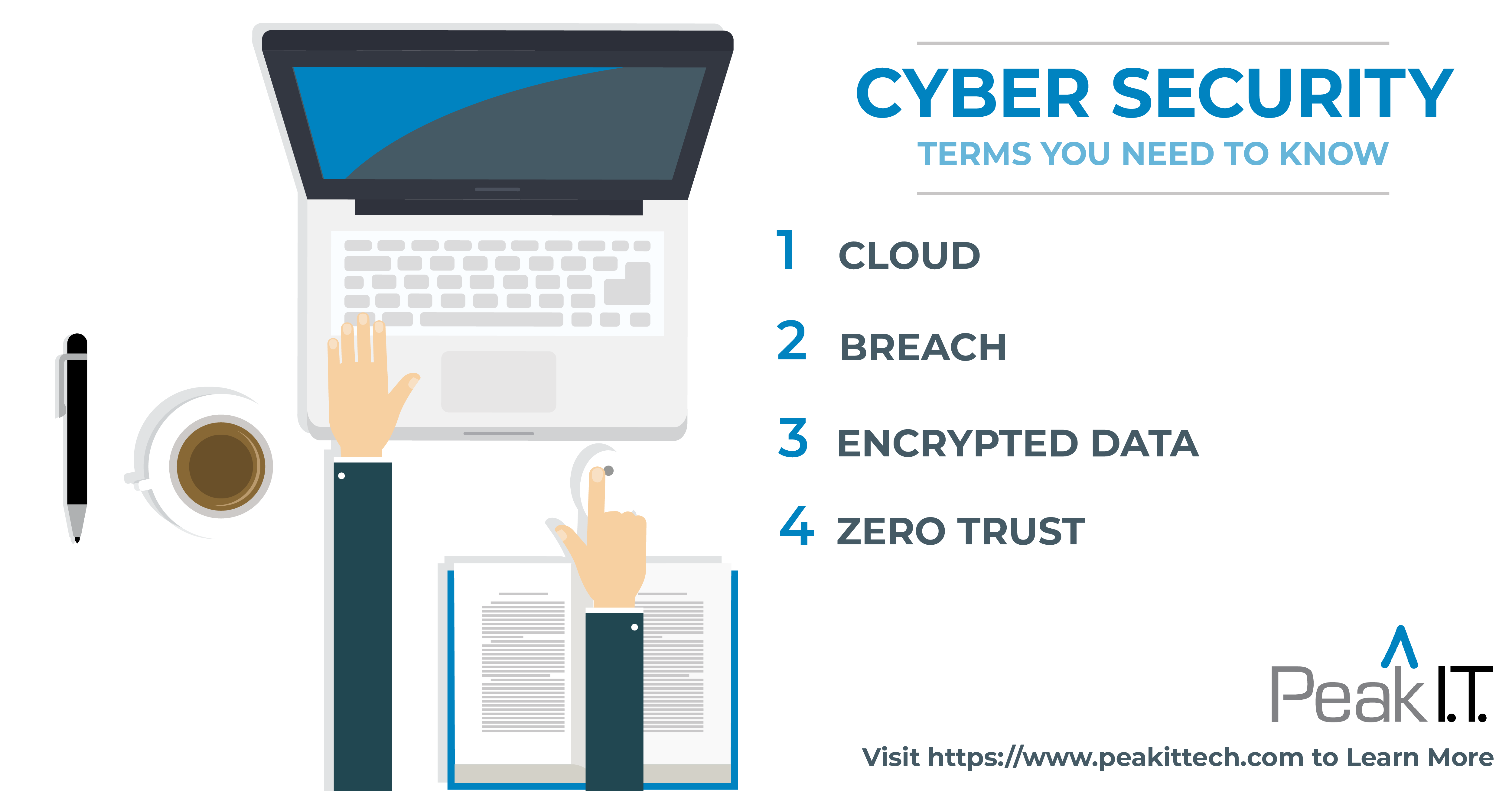We are back with another list of Information Technology and Cyber Security terms that are important to know. This list of basic terminology can be beneficial to you, whether you’re in the industry or not. They can help you understand why it is important to care about security or potentially introduce you to new technology that can benefit your business. Keep reading as we go over four terms to help you understand the world of cyber security a little better.
Cloud
Typically, the cloud is used for storage. In a broad scope it is used to deliver all kinds of I.T. and computer service needs. These can extend to servers, network support, software, and data management/analytics. “The cloud” is physically stored on a server farm. This is a much more cost effective way to host or store information. The cloud has the ability to store much more information and data than you would be able to by storing hard copies of all of your information. This will cut down on the physical space that you need and potentially cut costs for your business. In today’s world there seems to be more reasons to have cloud services than to not.
Breach
Breaches are related to cyber crimes. The breach is not just when information is released or stolen. It is when there’s unauthorized use of any sort of system that you may be using. If a password is leaked, if someone has access to your personal, professional or sensitive information, someone has access to your information that shouldn’t have it, you have experienced a breach.
Our past blogs have gone into detail on how to avoid these and what to do if your company does experience a breach.
Encrypted Data
Encryption is a security measure that can hide sensitive information. A person has to be given access or a way to access encrypted data. To a person without the correct security clearance, the information will appear scrambled or unreadable. This is typically done by software today so that maximum security is ensured.
Zero Trust
Zero Trust refers to a security policy that is increasing in popularity as time goes on. A classic security model usually subscribes to the thought that if someone is within your organization, they can be trusted. A zero trust policy assumes that everyone trying to access any information has malicious intent. This means that clearance and permission needs to be granted to access information, even internally. Certain levels of security clearance are given. For example, a regular associate might not need access to important financial information, so they don’t have it and need to be cleared by an I.T. department or someone higher up in the organization.
This was covered in a previous blog of ours, so if this sounds like something you would need, you can read more here.
All of these terms can help you understand how important cyber security is and some technology that can be beneficial to your company. Check back soon for more cybersecurity information and tips.

